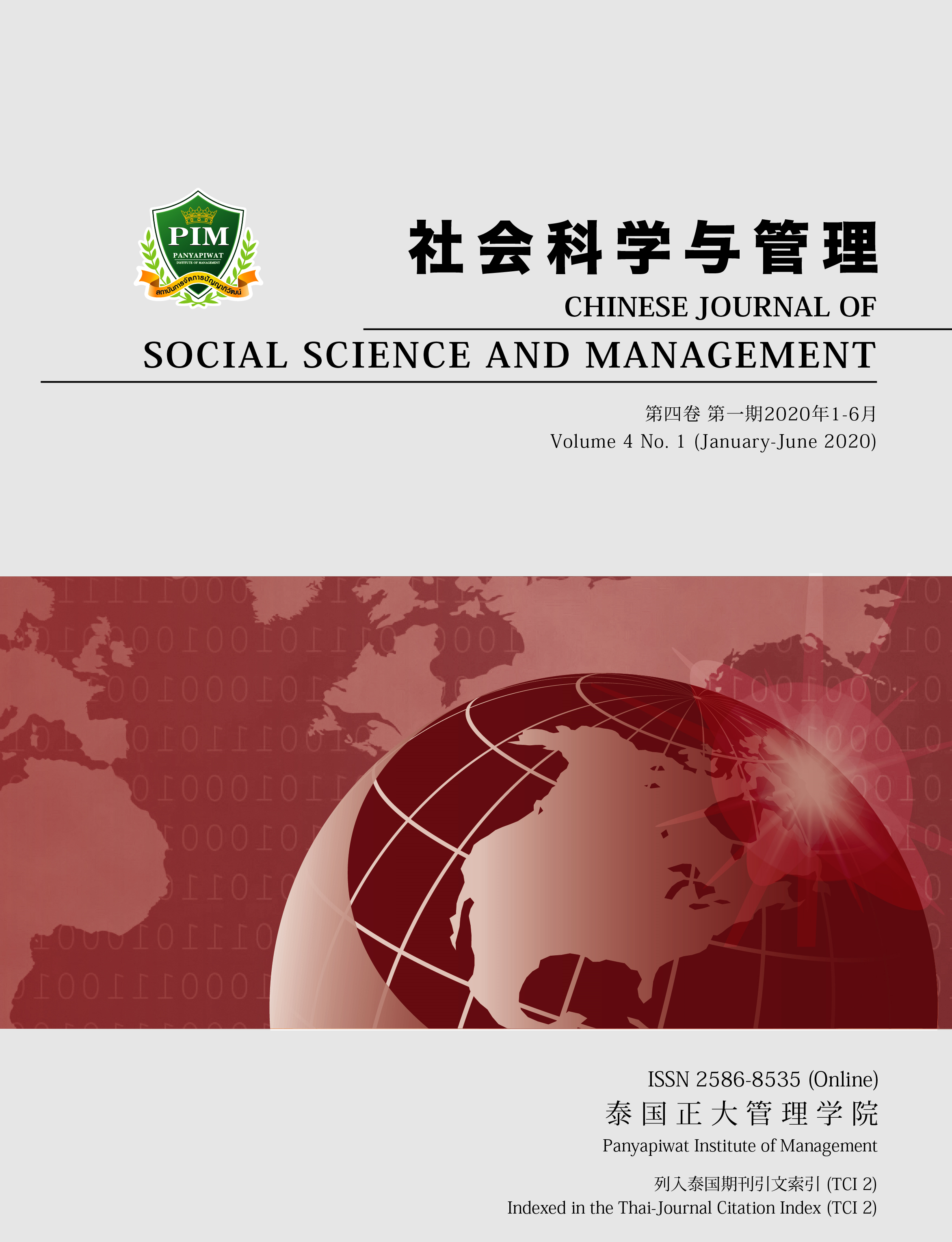THE INFLUENCE OF PSYCHOLOGICAL CAPITAL OF MAINLAND CHINA UNIVERSITY TEACHERS UPON PERFORMANCE---THE CHAIN MEDIATING EFFECT OF MOTIVATIONAL WORK BEHAVIOR AND WORKING THRIVING
Main Article Content
Abstract
Abstract
With the continuous advancement of information technology, the way people acquire knowledge and teaching methods are also changing. The relationship between teaching and learning in educational establishments has undergone revolutionary changes. Educational establishments need to enhance their competitiveness, meaning teachers should increase their scientific research and teaching output; this puts new and higher requirements on the ability of teachers. How to inspire teachers to be fulfilled with their occupation and increase performance, has become an important issue in current organizational behavior. From the perspective of psychological capital in educational organizations, the author constructed a model with psychological capital as the antecedent variable and individual motivational work behavior to influence teacher performance through job success. From mainland China, 600 university teachers were selected as data samples, and 519 valid samples were received, using SPSS24 and AMOS24 data testing and analysis, the empirical results showed that: (1) individual psychological capital is related to job success but did not have a direct relationship and needed to use motivational work behavior as a mediator; (2) motivational work behavior positively predicted the performance of teachers through job satisfaction; (3) through the integration of the models, psychological capital was used as an antecedent variable in the process of the job success influenced teachers' performance.
Article Details
Chinese Journal of Social Science and Management Editorial Division
The Office of Research and Development, Panyapiwat Institute of Management
85/1 Moo 2, Chaengwattana Rd., Bang Talat, Pakkred, Nonthaburi 11120, Thailand
Tel. 02 855 01048 E-mail: cjssm@pim.ac.th
References
Avey, J. B., Reichard, R. J., Luthans, F. & Mhatre, K. H. (2011). Meta-analysis of the impact of positive psychological capital on employee attitudes, behaviors, and performance. Human Resource Development Quarterly, 22(2), 127-152.
Bandura, A. (2001). Social Cognitive Theory: An Argentic Perspective. Annual Review Psychology, 52, 1-26.
Bandura, A. & National Institute of Mental Health. (1986). Prentice-Hall series in social learning theory. Social foundations of thought and action: A social cognitive theory. Prentice-Hall, Inc.
Bijlsma-Frankema, K. M., Rosendaal, B. W. & van de Bunt, G. G. (2005). Does trust breed heed? Differential effects of trust on heed and performance in a network and a divisional form of organizing. In K. M. Bijlsma-Frankema & R. J. A. Klein Woolthuis (Eds.), Trust under pressure; Empirical investigations of trust and trust building in uncertain circumstances (pp. 206-233).
Christine, P., Spreitzer, G., Gibson, C. & Garnett, F. G. (2012). Thriving at work: Toward its measurement, construct validation, and theoretical refinement. Journal of Organizational Behavior, 33(2), 250-275.
Dawkins, S., Martin, A., Scott, J. & Sanderson, K. (2013). Building on the positives: A psychometric review and critical analysis of the construct of Psychological Capital. Journal of Occupational and Organizational Psychology, 86(3), 348-370.
Hu, J. & Mo, Y. (2004). An Empirical Analysis of the Relationship between University Teachers' Work Values and Task Performance. Science of Science and Management of S. & T., (12), 114-117. [in Chinese]
Kahn, W. A. (1990). Psychological conditions of personal engagement and disengagement at work. Academy of Management Journal, 33(4), 692-724.
Niessen, C., Sonnentag, S. & Sach, F. (2012). Thriving at work---A diary study. Journal of organizational Behavior, (4), 468-487.
Paterson, T. A., Luthans, F. & Jeung, W. (2014). Thriving at Work: Impact of Psychological Capital and Supervisor Support. Journal of Organizational Behavior, 35, 434-446.
Peterson, S. J. & Luthans, F. (2011). Psychological capital and employee performance: A latent growth modeling approach. Personnel Psychology, 64(2), 427-450.
Rothbard, N. P. (2001). Enriching or Depleting? The Dynamics of Engagement in Work and Family Roles. Administrative Science Quarterly, 46, 655-684.
Spreitzer, G., Sutcliffe, K., Dutton, J., Sonenshein, S. & Grant, A. M. (2005). A socially embedded model of thriving at work. Organization Science, 16(5), 537-549.
Weick, K. E. (2003).Organizational Design and the Gehry Experience. Journal of Management Inquiry, 12(1), 93-97.
Youssef, C. M. & Luthans, F. (2007). Positive Organizational Behavior in the Workplace the Impact of Hope, Optimism, and Resilience. Journal of Management, 33(5), 774-800.


